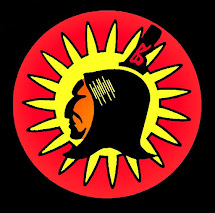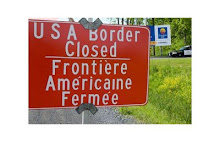
Harry Wallace, the current chief of the Unkechaug Indian Nation, trying to learn at least an approximation of his native tongue, has an Algonquian-language app on his iPhone. “I’m gettin’ there,” he said from behind a large cluttered desk in his office, a small cedar-paneled lodge set behind Poospatuck Smoke Shop and Trading Company in Mastic, Long Island. It was early August; 65 miles away on Manhattan Island, Mike Bloomberg—modern-day equivalent of the Great White Father—was not happy with Chief Wallace and the Unkechaug. This is because the chief and his tribe were making big bucks selling millions of packs of cigarettes tax-free, many of these to residents of New York City, which imposes a $1.50-per-pack tax of its own. Exactly how many New Yorkers were getting smokes under cover of the Unkechaug is not easy to answer. An Independent Budget Office report estimated that in 2006, around 207 million packs were bought by city smokers. No tax was paid on a quarter of these (only a fraction of the untaxed smokes were bought on Indian reservations). But Bloomberg has declared war on smoking, and wherever there is smoke, he wants his cut. So last September, the city filed a motion in federal court against a group of Unkechaug retailers, claiming hundreds of millions in lost city tax revenue.
Wallace was still recovering from last night’s “sweat”—several important dudes, dome-shaped lodge, a pit of hot rocks in the middle, much perspiration, a prayer song or two—at an undisclosed location. It was the culmination of a week of mourning for Benny Miller, a 22-year-old tribe member who died in a motorcycle accident. His death mobilized Unkechaug near and far to return to the reservation, to mourn and sing: the honor song during the wake, the various burial and prayer songs throughout.
Geronimo’s refrain, “They’re not satisfied until they get all of it,” is never far from Chief Wallace’s mind. But signals were still pointing toward victory for the Unkechaug: Only weeks prior, a New York State Appellate Court ruled that the Cayuga Indian Nation could continue selling untaxed cigarettes to non-Indians. He pushed a button on a speakerphone connected to the smoke shop. “Can I get two cups of coffee in here?” he said in a baritone. The chief is 55, broad-shouldered, and has long thick salt-and-pepper hair, which he wears in a tight ponytail. Various New York State Bar plaques line the walls. It was Wallace who opened the first smoke shop back in 1991, with the intention of making a little money, sure, but as a declaration too—the Unkechaug’s sovereign right to exploit whatever economic advantages the Indians’ sovereignty affords.
The Unkechaugs, like all recognized tribes, are exempt from state and many federal taxes, but beyond this their economic status is murkier, based on whatever arrangement the state and the Indians can agree on. In 1994, the U.S. Supreme Court ruled that New York is entitled to collect taxes on Indian sales of cigarettes and motor fuel to non-Indians. Coming up with a way of enforcing that tax has been the trouble.
Their tribal rights have been questioned before, in various ways. Among the papers on the chief’s cluttered desk was a folded-up family tree. In 2006, Gristedes Food Inc. filed a suit—almost all of it since dismissed—questioning the legitimacy of the residents’ native heritage. Gristedes claimed that Unkechaug vendors, located some 65 miles from their nearest supermarket, were unfairly cutting into their profits. Fortunately, the tribe keeps excellent records. The first time such an accusation was made was back in 1935, when publishing scion and notorious cad William Shepherd Dana bought the Floyd estate and claimed that the tribe were, essentially, squatters.
The chief laid out the genealogy for me. “So you start with me, Harry Wallace,” he said, consulting the family tree before him. “Then it went to my mother, Lydia Anne Davis, and then it went to her parents, Charles Davis and Lydia Anne Davis. My grandmother has the same name.” He paused and looked up over his reading glasses, then rattled through a few more names. “Now, Sylvie Hicks and Jerusha Lott were sisters. Their mother was Sybel Lott, and Sybel Lott—we have historical documents—was from a very prominent Indian family.” She was a direct descendant of Chief Nowedonah, and Wallace believes it’s a good bet she was one of the elderly women Jefferson spoke to.













![-[]-[]-/\-[]-[]-](https://blogger.googleusercontent.com/img/b/R29vZ2xl/AVvXsEjLoXmKO8PJVQ5pZ2q7GX7nFKw8H2tb28dxt-o10FUBNtOGszWhWoLB7tgjtMgtISpuSxNW3fcDxfuSS2DqojsdjNJ1lVggyUS374PnzsDbOhk4ukvtTunFQcyfkckZeBzcLbri4LDYN_E/s214/29-03-A-voice-from-the-Akw-.jpg)





1 comment:
The 1994 Attea case continues to be mischaracterized. Please read "Attea is not a Landmark Case", April 21, 2009 on this blog or search Department of Taxation and Finance of New York versus Milhelm Attea (there is a link on the sidebar)and read the case yourself. All the Attea case determined was that Attea's Federal Indian Taders License from the Interior Department did not supercede state law. They determined this by finding 2 places where a court placed a minimum burden on Native retailers to collect tax for the state. Neither of the 2 Native communities were in or associated with New York.
Post a Comment